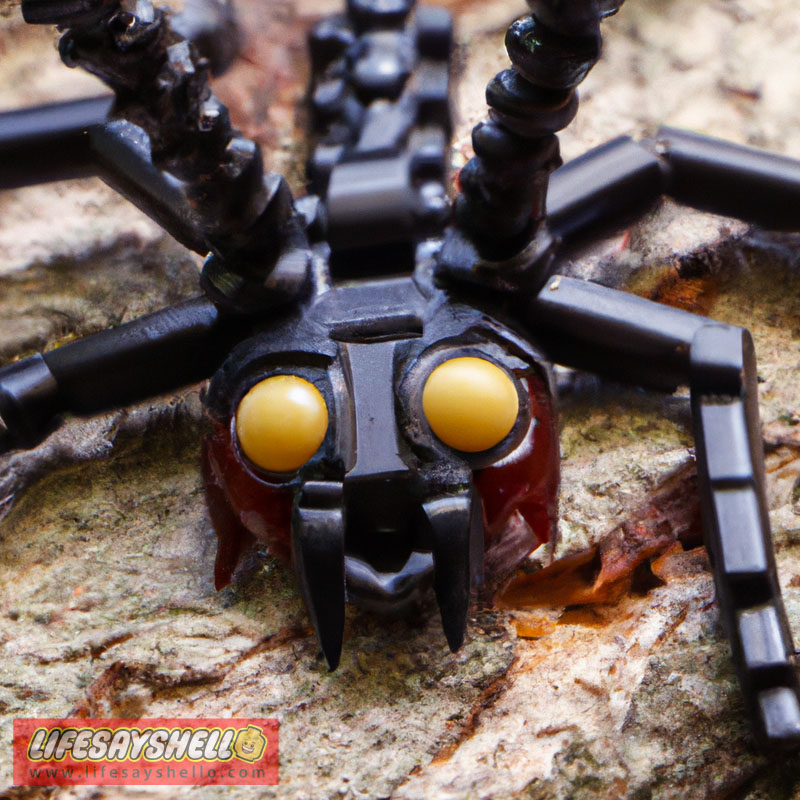Are Wolf Spiders Poisonous? Debunking the Myths and Understanding the Facts

Have you ever wondered if those creepy, eight-legged wolf spiders lurking in your garden or basement are actually poisonous? Let's debunk the myths and dive into the fascinating world of these misunderstood arachnids.
Introduction
Wolf spiders, often mistaken for being poisonous and dangerous, have gained quite a notorious reputation. However, there's more to these creatures than meets the eye. In this article, we'll explore the truth about wolf spiders, their venom, and their role in the ecosystem, while also addressing common misconceptions and providing helpful tips for handling encounters with these intriguing arachnids.
The Truth About Wolf Spider Venom
Wolf Spider Venom: How Harmful Is It to Humans?
Although wolf spiders do possess venom, the truth is that their venom is not considered medically significant for humans.
Wolf spiders belong to the family Lycosidae, which consists of over 2,000 species worldwide. These spiders use their venom to immobilize and kill their prey, typically insects and other small invertebrates. However, the venom of wolf spiders is not as potent as that of some other spiders, and its effects on humans are generally mild.
If bitten by a wolf spider, a person may experience symptoms such as localized pain, redness, swelling, and itching. In rare cases, individuals may have an allergic reaction to the venom, which could cause more severe symptoms. However, these instances are few and far between, and most wolf spider bites do not require medical attention.
Comparing Wolf Spiders to Other Venomous Spiders
Wolf Spiders vs. Other Venomous Spiders: How Do They Compare?
When it comes to venomous spiders, wolf spiders are far less dangerous than their infamous relatives, the black widow and the brown recluse.
While all spiders produce venom to some extent, the potency and potential harm to humans can vary greatly. Black widows and brown recluses are two examples of spiders with venom that can be dangerous to humans. Their bites can cause severe pain, muscle cramps, and, in some cases, life-threatening complications.
In contrast, the venom of wolf spiders is much less potent, and their bites are generally not considered a significant threat to human health. This is not to say that a wolf spider bite is entirely harmless, but the risk of severe complications is minimal compared to that of other venomous spiders.

The Role of Wolf Spiders in the Ecosystem
The Importance of Wolf Spiders in Our Ecosystem
Wolf spiders may not be the most beloved creatures, but they play a crucial role in controlling insect populations and maintaining a balanced ecosystem.
As predators, wolf spiders help keep insect populations in check, preventing them from becoming too large and causing damage to plants and crops. These spiders are active hunters, relying on their speed and agility to catch their prey rather than spinning webs.
Wolf spiders are also an important food source for other animals, such as birds, reptiles, and small mammals. By contributing to the food chain and controlling insect populations, wolf spiders play a vital role in maintaining the balance and health of ecosystems around the world.
Debunking Common Myths About Wolf Spiders
Common Wolf Spider Myths: Separating Fact from Fiction
Despite their fearsome appearance and reputation, wolf spiders are often misunderstood, and many myths about them continue to circulate.
Myth 1: Wolf spiders are aggressive and likely to bite humans
While wolf spiders may appear intimidating, they are not naturally aggressive toward humans. In fact, they are more likely to flee from a perceived threat than to attack. Wolf spiders will only bite if they feel threatened or cornered, and even then, their bites are usually a last resort.
Myth 2: Wolf spider bites are extremely dangerous
As we've already discussed, the venom of wolf spiders is not considered medically significant for humans. While their bites can cause mild to moderate discomfort, they are rarely dangerous and typically do not require medical treatment.
Myth 3: Wolf spiders are always large and easy to identify
Wolf spiders come in various sizes, ranging from less than half an inch to over an inch in body length. While some species are quite large and recognizable, others may be smaller and easily confused with other types of spiders. It's essential to learn the specific characteristics of wolf spiders, such as their eye arrangement and body shape, to accurately identify them.
How to Handle a Wolf Spider Encounter
Tips for Handling and Preventing Wolf Spider Encounters
Encountering a wolf spider can be an unnerving experience, but with a few simple tips, you can safely and humanely deal with these arachnids.
What to do if you encounter a wolf spider
- Remain calm: Remember that wolf spiders are not aggressive and are more likely to flee than attack.
- Capture and release: Use a glass or jar to gently trap the spider, then slide a piece of paper or cardboard underneath to lift it. Carefully carry the spider outside and release it in a suitable habitat.
- Avoid handling with bare hands: While wolf spider bites are not usually dangerous, they can still be painful. It's best to avoid handling them directly to minimize the risk of being bitten.
Preventing future encounters with wolf spiders
- Keep your home and garden tidy: Wolf spiders are attracted to clutter and debris, which provide hiding spots and hunting grounds. Regularly clean and declutter your home and garden to reduce the likelihood of attracting wolf spiders.
- Seal entry points: Inspect your home for cracks, gaps, and other potential entry points for spiders, and seal them up to prevent unwanted guests.
- Use natural deterrents: Some essential oils, such as peppermint and lavender, are known to repel spiders. Try using these in your home to discourage wolf spiders from entering.
Conclusion
Wolf spiders, while often misunderstood and feared, are not the dangerous creatures they're made out to be. Their venom is not medically significant for humans, and they play a crucial role in maintaining a balanced ecosystem.
By debunking common myths and learning how to handle encounters with these spiders, we can better appreciate their importance and treat them with the respect they deserve.




Comments